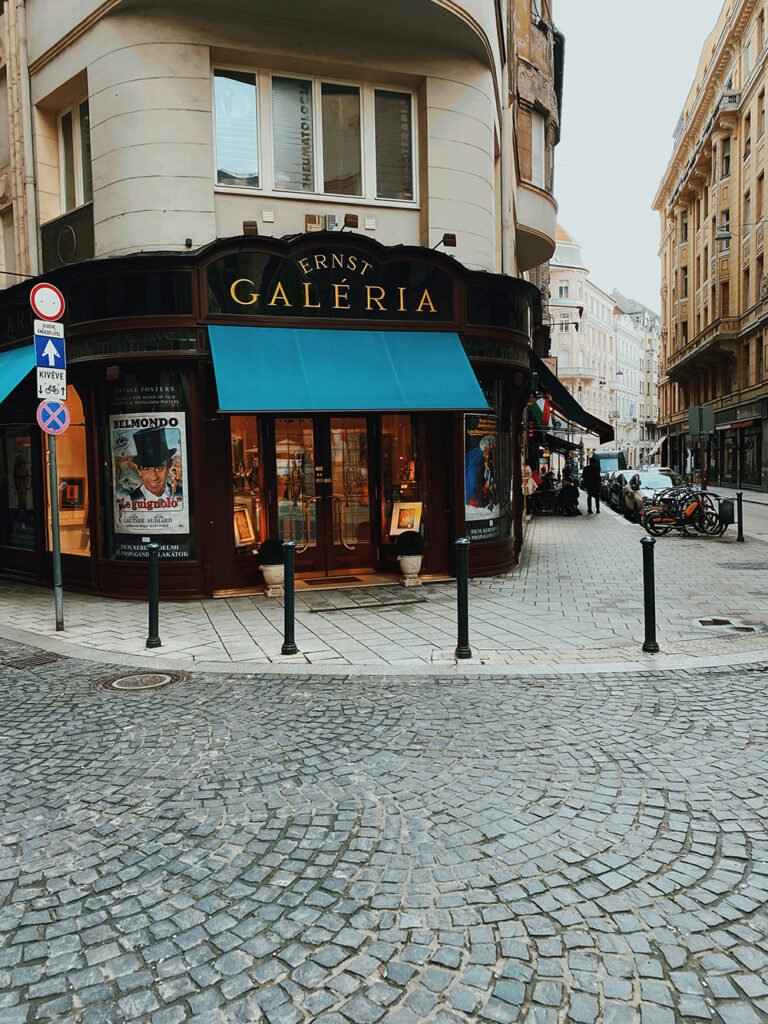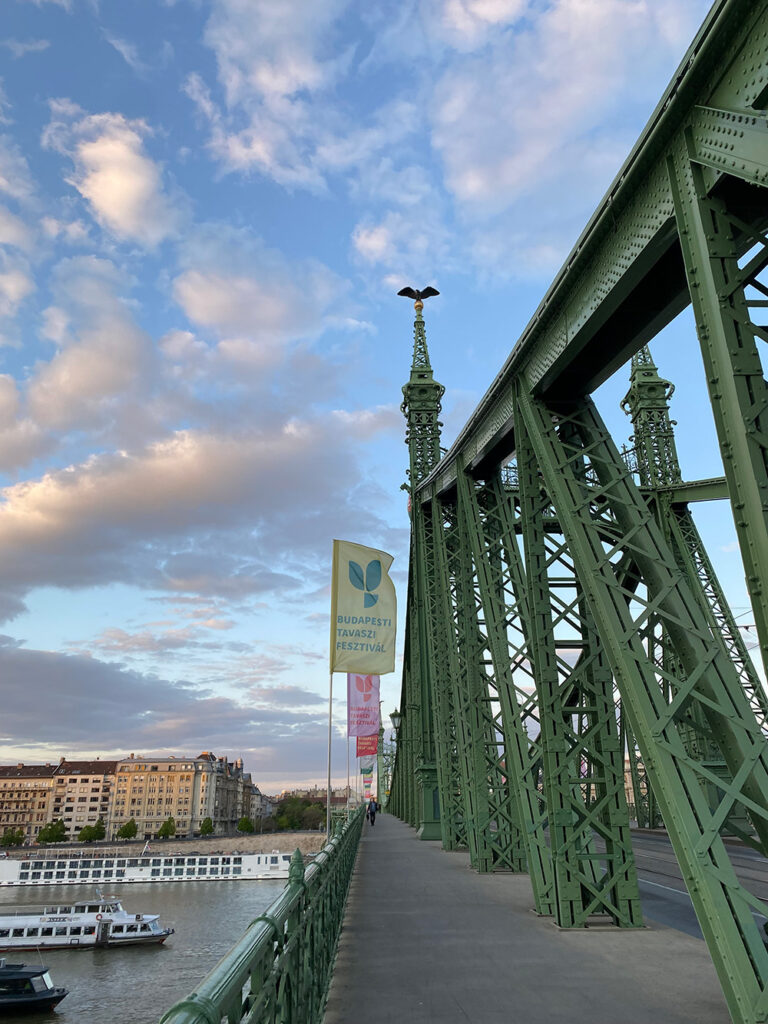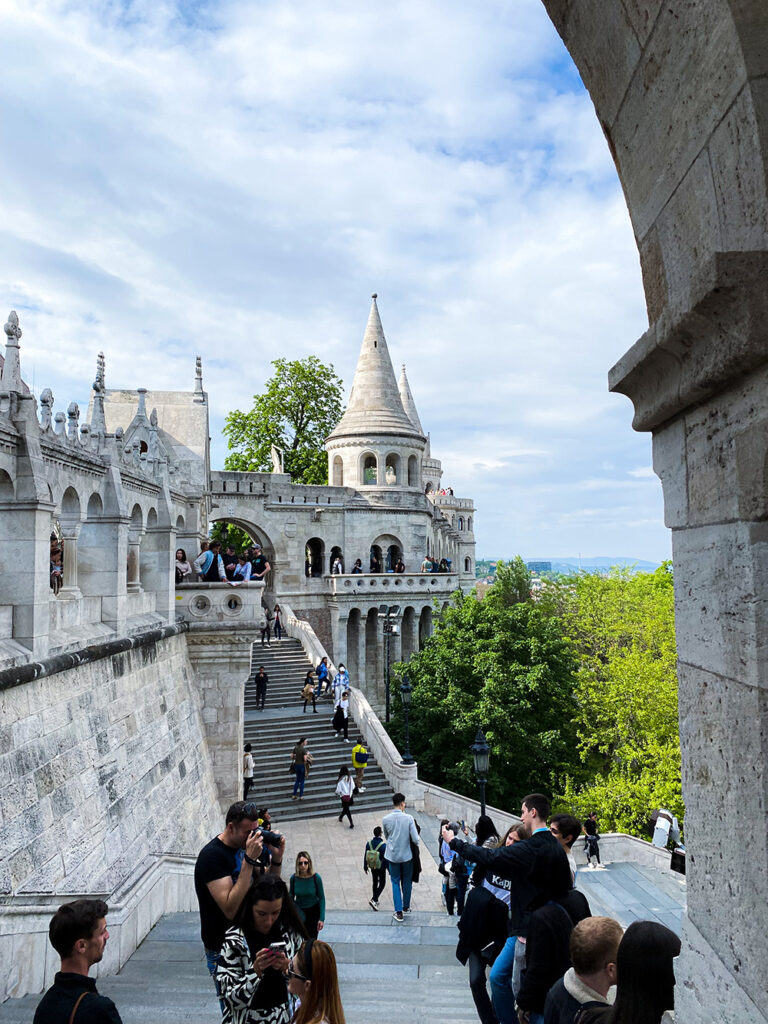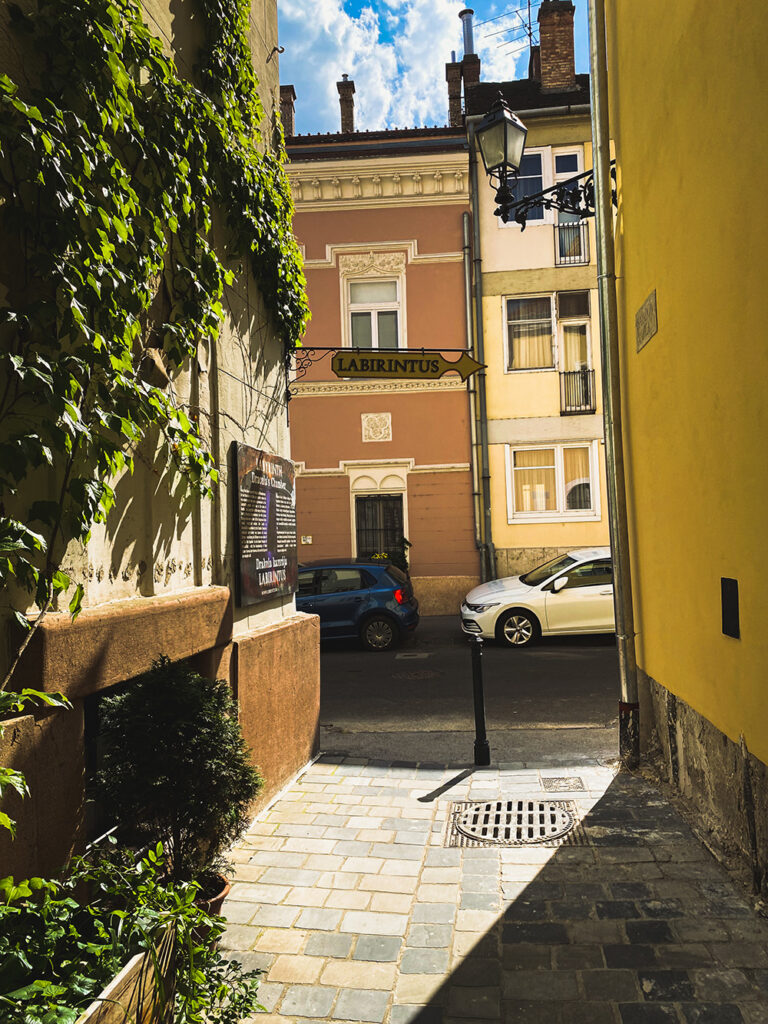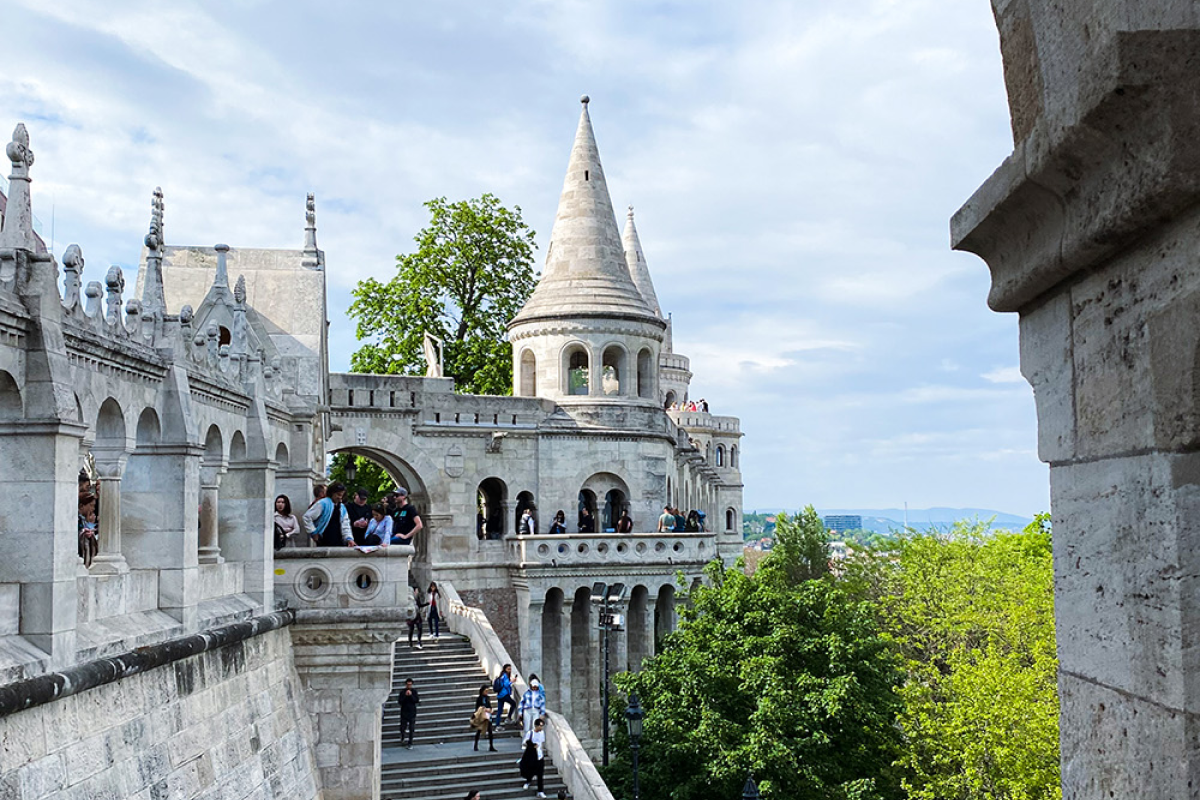Are you a digital nomad in Budapest, or perhaps considering making the beautiful Hungarian capital your next destination? In this comprehensive guide, I will explore the ins and outs of the digital nomad lifestyle in Budapest, providing you with the essential information and tips to make your experience in this vibrant city a success. From co-working spaces to accommodation options, transportation, budgeting, work-life balance, climate, language, and communication, we’ve got you covered as I draw from my personal experience from living and working in Budapest for a month.
Note: many or all products featured here are from partnerships which do compensate me. However this does not influence my evaluations as my opinions are my own and brought upon from experience and using these products.
Table of Contents
Overview of Remote Work in Budapest – My experience
Budapest became my next long-term destination following my time in Berlin, marking a significant shift from my previous month of relentless travel across six countries while simultaneously working. This period of non-stop movement had left me yearning for a place to settle down, recharge, and soak up the local culture and climate. Budapest offered the perfect opportunity to do just that. Despite a few initial hiccups in securing accommodation, I was fortunate to find a shared apartment on the bustling Pest side, conveniently located near the picturesque river. This location provided me with the most scenic running views I had ever experienced. I had the pleasure of sharing the apartment with wonderful roommates, which added to the enjoyment of my stay. Budapest, with its vibrant yet clean atmosphere, rich history, and culture, is an excellent choice for young digital nomads. Its affordability and accessibility to everything, make it an ideal starting point for those new to the digital nomad lifestyle. While I mostly worked from my room, I will also introduce some alternative workspaces for those seeking variety. My experience in Budapest was peaceful, easy on my budget, and filled with opportunities, and I eagerly anticipate my return to this fantastic city.
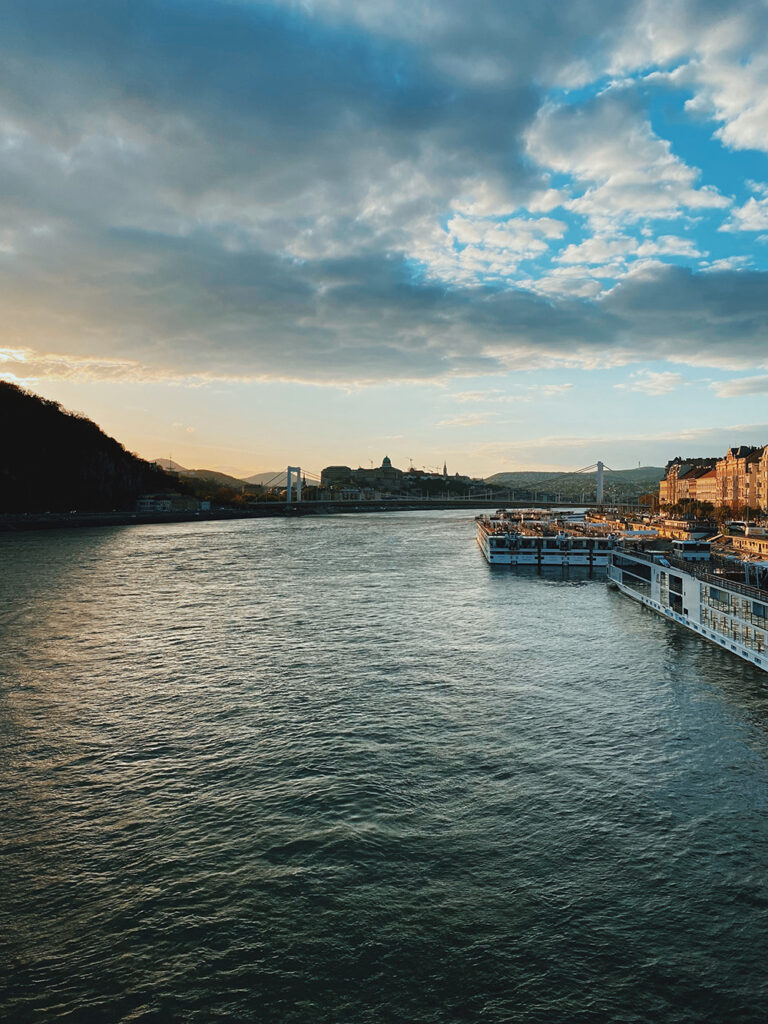
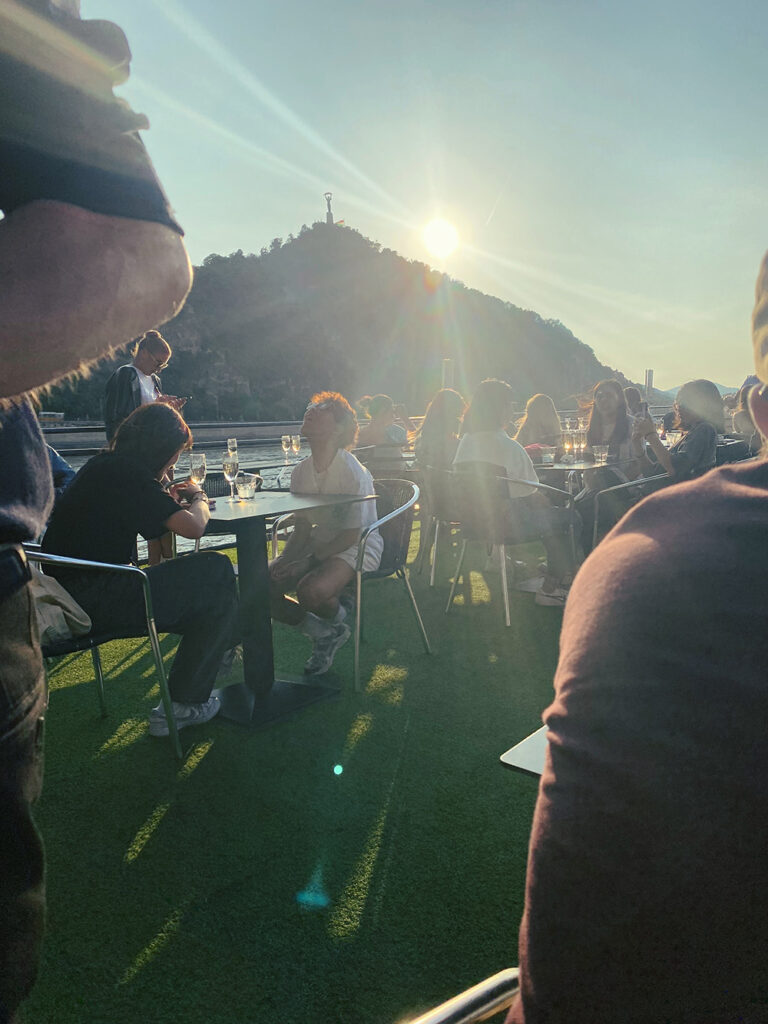
Digital Nomad in Budapest – Exploring Co-Working Spaces for Digital Nomads
My space:
As just mentioned, I had a room in a 2-bedroom apartment. My room was actually quite large and had a nice wooden desk. Unfortunately, I didn’t have the best chair and it was just a cheap fold out one. But overall, this was a great space and I had plenty of room for all my gear to grind out some work. I felt very productive during my stay and was able to get a lot of personal projects completed on top of my usual design job. Being in the main centre was also perfect as I had everything close by, coffee shops and supermarkets just next door so I didn’t have to take long breaks and actually made me more efficient while working.
Why Choose a Co-Working Space in Budapest?
Budapest offers a diverse array of co-working spaces that cater to the needs of digital nomads. Here’s why you could consider these spaces for your work over your home office:
1. Productivity and Community: Co-working spaces in Budapest are designed to maximize productivity. They offer quiet work areas, high-speed internet, and all the amenities you need. Plus, you can connect with like-minded individuals, fostering a sense of community and collaboration which is most ideal while being a digital nomad.
2. Flexible Options: Many co-working spaces in Budapest provide flexible membership options, allowing you to choose what suits your needs best, whether it’s a day pass, a monthly subscription, or a more extended commitment.
3. Professional Environment: Co-working spaces in Budapest offer a professional environment that’s ideal for meetings and client interactions. Impress your clients in a well-equipped, modern setting. This also gives you a feeling of professionalism especially while in Budapest.
Popular Co-Working Spaces in Budapest
Now, let’s take a look at some of the most popular co-working spaces in Budapest:
1. Kaptár: Located in the heart of Budapest, Kaptár is known for its creative atmosphere and flexible pricing. It’s a hub for freelancers, digital nomads, and startups.
2. Loffice: With multiple locations across the city, Loffice offers a variety of co-working options, from individual workstations to spacious meeting rooms.
3. Impact Hub Budapest: This co-working space focuses on social entrepreneurship. It’s perfect for those who want to make a positive impact with their work.
Accommodation Options for Digital Nomads in Budapest
1. Apartments: The Freedom of Independence
Renting an apartment is a popular choice among digital nomads for the privacy and independence it offers. Apartments give you the freedom to cook your meals, work in peace, and enjoy the local lifestyle. There are numerous platforms like Airbnb and Booking.com that you can find short-term apartment rentals. But I would highly recommend looking into Housing Anywhere and Spotahome for short term rentals. If you’re a solo traveller, then you can find fantastic shared accommodation with usually young like minded individuals. I used Housing Anywhere which is a fantastic platform that holds your money before you inspect the place making you avoid scams. From memory I paid around 400 euros for the month which compared to staying in Berlin was a bargain. I also have a special discount with this platform of 20% of your month, just use my code Jordan20. If you’re wanting more details on these options, then check out my guide to accommodation blog post post to see more. Alternatively, you can contact me directly and I can help assist you with some options.
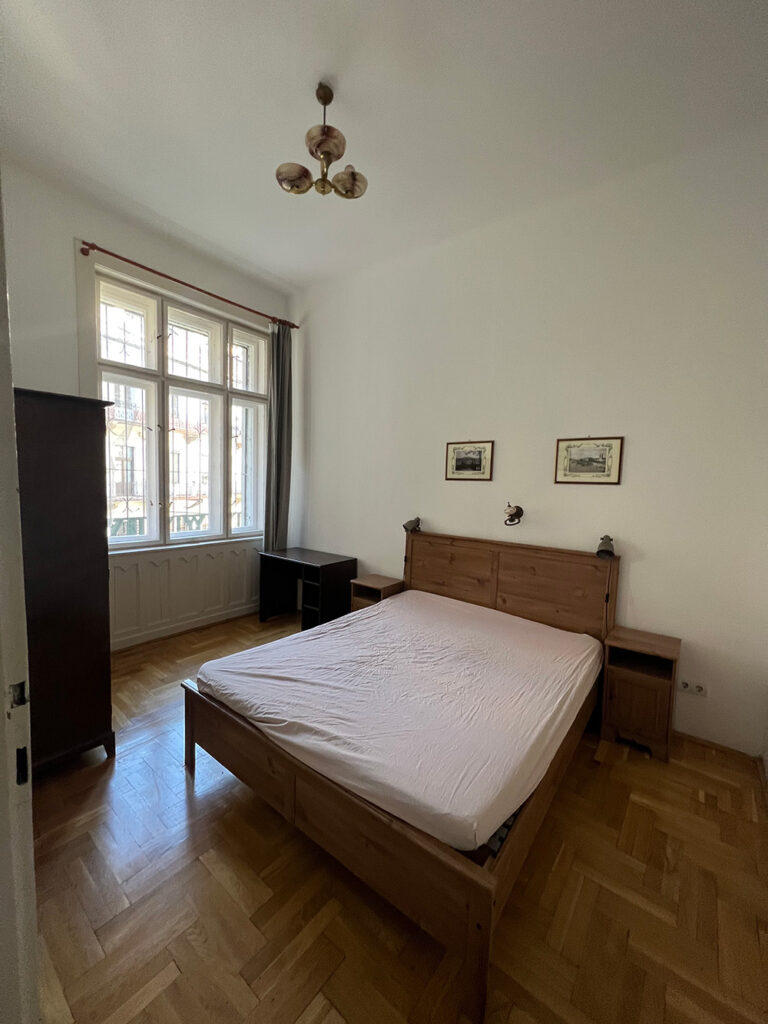

2. Hostels: Budget-Friendly and Social
For digital nomads on a budget or those looking to meet fellow travellers, hostels are a fantastic option. Budapest has a wide selection of hostels that offer dormitory-style accommodation and private rooms. Hostels often provide a vibrant social environment with communal areas, making it easy to connect with like-minded individuals. I will recommend if you’re going to be working to look at the common areas and make sure they have capable working conditions for you. I have been in a few hostels that I couldn’t work out of and had to go elsewhere due to poor common areas.
3. Coliving Spaces: Community and Convenience
Coliving spaces have gained popularity in Budapest, offering a blend of the comfort of an apartment and the social aspect of a hostel. These spaces provide furnished rooms or apartments with communal areas, such as kitchens and lounges. It’s an excellent choice if you want to live and work with other digital nomads, fostering a sense of community especially as a solo travellers this could be perfect for you to meet new and interesting people.
4. Extended-Stay Hotels: Comfort and Amenities
Extended-stay hotels offer the convenience of a hotel stay with the flexibility of an apartment. You’ll have a fully equipped kitchen, spacious living areas, and hotel amenities like cleaning services and on-site restaurants. These are ideal for those seeking a comfortable and hassle-free stay. Usually a more expensive option so be prepared to pay for this as comfort does still come at a price in Budapest.
5. Co-Housing: Shared Living with Locals
If you want a truly immersive experience, consider co-housing with locals. This involves sharing a home or apartment with a local resident, giving you a chance to learn about the culture and lifestyle of Budapest first-hand. Websites like Coliving.com and Facebook groups can help you find co-housing opportunities. Do be cautious with Facebook as it is a common place for scams to happen.
6. Digital Nomad-Focused Accommodations: Tailored Experiences
In recent years, Budapest has seen the emergence of accommodation options specifically designed for digital nomads. These establishments are equipped with high-speed internet, coworking spaces, and networking events, making them an ideal choice for those looking for a seamless work-travel experience. With this trend only growing this may become the most ideal option with probably the best space for like-minded people to come together and work.
Transportation and Commuting Tips for Digital Nomads in Budapest
1. Public Transport: The Budapest Card
The heart of Budapest’s public transportation system is its buses, trams, trolleys, and the metro. To make commuting more convenient, consider getting a Budapest Card, which provides unlimited access to public transportation. It’s an economical option for digital nomads staying in the city for an extended period. Budapest also has a fantastic app designed to get a monthly transport card too, which is what I got and was extremely efficient.
2. Metro: The Fast and Reliable Choice
Budapest’s metro system, consisting of three lines (M1, M2, M3), is an efficient way to travel. The metro is known for its punctuality and can get you to key areas of the city quickly. If your work or accommodation is close to a metro station, it’s a convenient option. I tend to use the metro if I was travelling across the city to the Buda area as it was very easy to do so.
3. Trams and Buses: Extensive Coverage
Budapest’s tram and bus network is extensive, covering the entire city. These are great options for reaching neighbourhoods not directly serviced by the metro. Using the Budapest Card, you can hop on, and off trams and buses as needed. Probably my most used transport due to the ease of access and found that they were on time almost every time I used.
4. Taxis: Uber and Bolt
Uber and Bolt operate in Budapest, providing a reliable and convenient way to get around the city. While taxi’s can be a bit more expensive than public transportation, they’re excellent for getting to your destination quickly, especially in the evenings or if you’re traveling with luggage.
5. Biking: Explore on Two Wheels
Budapest has been working to become a more bike-friendly city, with designated bike lanes and rental stations throughout the city. Biking is an eco-friendly and healthy way to explore Budapest while commuting to work. I tended to rent the e-scooters a lot and Budapest is great as they have designated parking areas for these which create less mess in the city.
6. Car Rentals: Freedom of Mobility
For nomads who prefer the freedom of driving, car rentals are available in Budapest. However, it’s essential to be aware of traffic rules, parking regulations, and the city’s one-way streets. If your just staying in the city then you most likely won’t need this as public transport is very efficient.
7. Walkability: Stroll Through Budapest
Budapest is known for its charming streets and beautiful architecture. Many digital nomads find that the city is highly walkable, and walking can be an enjoyable way to explore your surroundings. It’s also a great opportunity to discover hidden gems. My most used transport method because the city was quite small and being in the centre made everything in walking distance for me. In general it’s also a fantastic city to walk around, with gorgeous architecture and scenery.
Cost of Living and Budgeting as a Digital Nomad in Budapest
1. Accommodation Costs
Accommodation is one of the most significant expenses for digital nomads. However, Budapest offers a wide range of options to suit different budgets. Consider your preferences when choosing between apartments, hostels, coliving spaces, or other options. Prices can vary significantly depending on the location and amenities. As mentioned I found it very cheap here and I paid around 400 euros for the month.
2. Food and Dining
Budapest is famous for its diverse culinary scene, which can be both affordable and indulgent. While dining out can be reasonably priced, you can save money by cooking your meal in accommodations with kitchen facilities. A budget tip is to explore local markets for fresh, affordable produce and groceries. I tended to just cook at home as it was the best way to save money for me.
3. Transportation Costs
Budapest’s public transportation system is budget-friendly, with the Budapest Card offering unlimited access. It’s an economical option, and it’s worth purchasing if you plan to use public transport frequently. If you prefer taxis or ridesharing services, set a monthly transportation budget to avoid overspending. I found that tickets are checked quite often so it is defiantly wise to purchase tickets.
4. Entertainment and Leisure
Exploring Budapest’s rich cultural offerings is a highlight of your stay. Many museums, galleries, and historic sites offer discounts for students or young adults. Plan your visits on discount days to save on admission fees. Also, consider attending free events, such as outdoor concerts or festivals. I went to a festival my first week which was very cheap and was lucky enough have Erasmus friends so a lot of events were free or discounted for me.
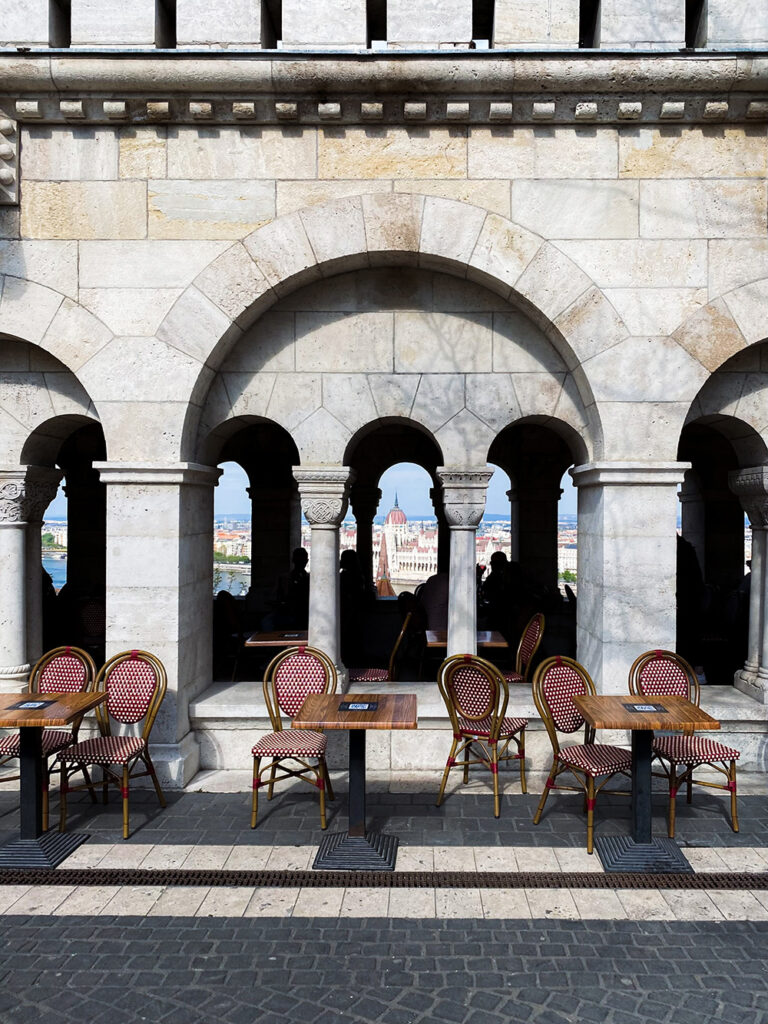
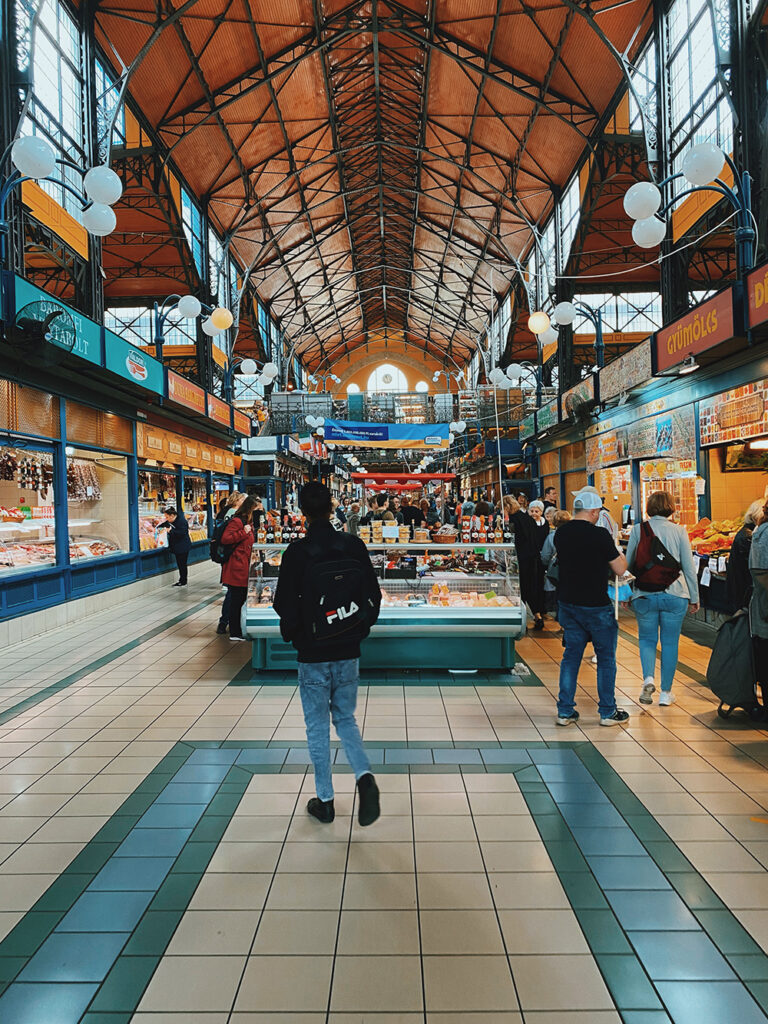
5. Co-Working Space Fees
If you choose to work in a co-working space, factor in the monthly membership or daily pass fees into your budget. Some co-working spaces offer flexible pricing plans, allowing you to choose what aligns with your financial goals. With my budget I tended to just work from home due to these fees.
6. Mobile and Internet Costs
Make sure to have a local SIM card for affordable mobile data and call options. Budapest provides a variety of mobile plan options, so shop around for the one that suits your data usage and communication needs. If not then a great tip can be to get an e-sim. I use Airalo which is a great way to have another sim on your phone while travelling.
7. Healthcare and Insurance
Invest in travel insurance that covers healthcare costs. Budapest has excellent medical facilities, but insurance ensures you’re financially protected in case of unexpected medical expenses. Be aware of the terms of your insurance plan and any out-of-pocket costs. I still use Feather which as continued to work fine for me.
8. Miscellaneous and Savings
Create a miscellaneous category in your budget to cover unforeseen expenses and save for future travels. Having a financial safety net allows you to enjoy your time in Budapest without worrying about unexpected costs. My budgeting skills weren’t the best, but my mindset was to enjoy myself so if I had to spend a little more then I was ok with that because money does come back. It is still wise though to have a budget to refer to.
Monthly Budgeting Tips
– Set a monthly budget that includes all your expected expenses, including accommodation, food, transportation, and entertainment.
– Monitor your spending regularly to ensure you stay on track or close with your budget.
– Take advantage of Budapest’s free or low-cost cultural activities and events. Meet Erasmus people! They have all the best deals.
– Plan your travels and accommodation bookings in advance to secure the best deals.
– Look for local discounts, loyalty cards, and promotions to save on everyday expenses.
Achieving Work-Life Balance as a Digital Nomad in Budapest
1. Establish a Dedicated Workspace
Having a dedicated workspace where you can focus on your work is essential. Whether you work from a co-working space, your accommodation, or a quiet café, a well-defined workspace will help you separate work from leisure. This is why I made it very important to have a good desk setup at my accommodation because this helps me have everything setup and ready to go.
2. Set Boundaries
Set some boundaries for your work hours and leisure time. Define when your workday starts and ends, and stick to this schedule as much as possible. This separation ensures you don’t overwork and can fully enjoy your free time. I will say this does depend on the user, because for me I love the full grind mode and when I wasn’t spending time doing other activities I would be working. However for me I have to get outside at least once a day even if just for a jog to help clear my head and recharge.
3. Plan Your Days
Creating a daily schedule can help you balance work and leisure effectively. Allocate specific time blocks for work, relaxation, and exploring Budapest’s attractions. This structured approach helps you make the most of your time. This is also why I like to do monthly stays as you can quickly and easily adjust your time into a plan. I was able to get into a routine of working and new where and when I had spare time.
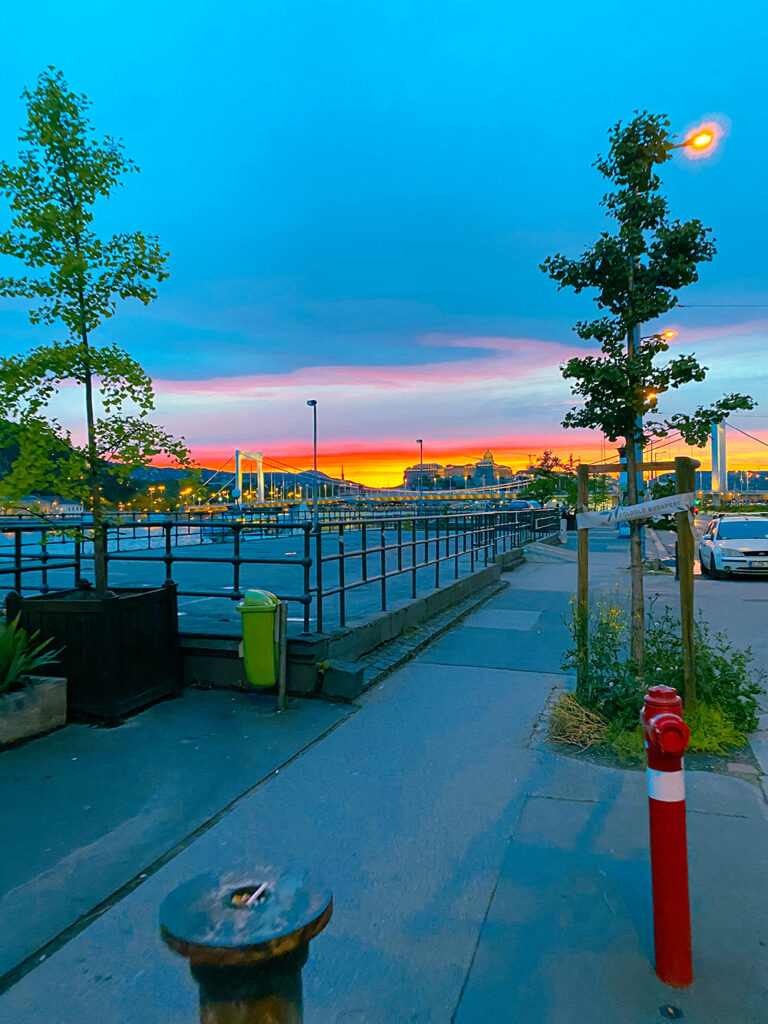
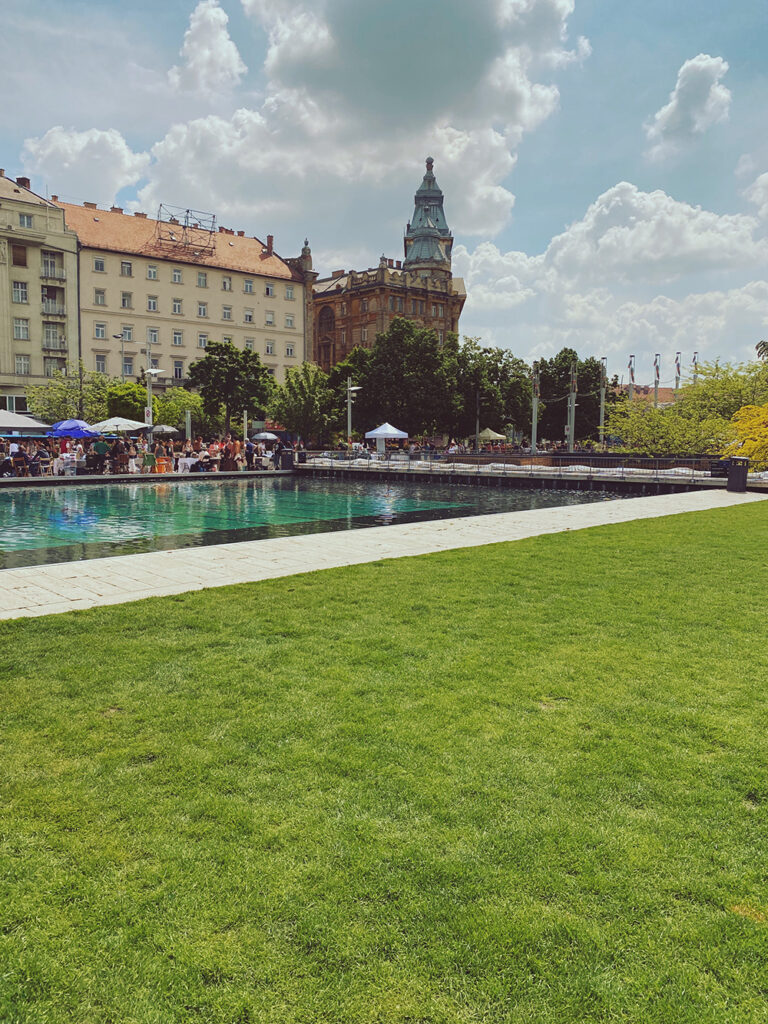
4. Prioritize Self-Care
Taking care of your physical and mental well-being is paramount. Make time for regular exercise, healthy meals, and relaxation. Budapest offers beautiful parks and wellness options to support your self-care routine. Like mentioned Budapest is beautiful so get out and explore I regularly was running around the Danube River for the best running views.
6. Socialize and Network
Budapest has a thriving digital nomad community. Attend meetups, join co-working events, and engage with locals and fellow nomads. Networking can lead to valuable connections and friendships, enhancing your work-life balance. There is also a lot of great events on all the time throughout the city as you can party every night of the week.
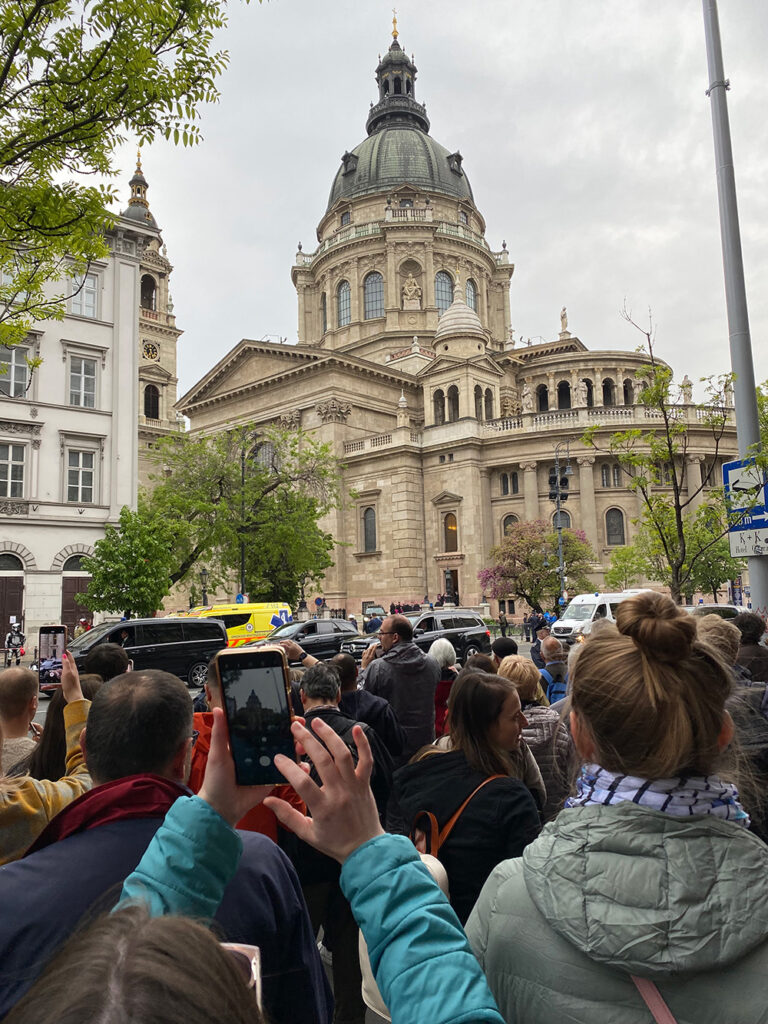

7. Embrace the Local Culture
Immerse yourself in the local culture by trying Hungarian cuisine, exploring historical sites, and participating in local events. Experiencing the city’s culture is an integral part of the digital nomad lifestyle and contributes to a balanced life.
8. Unplug When Necessary
While technology enables digital nomads to work from anywhere, it’s essential to unplug from work when needed. Allocate specific time for device-free activities to recharge and relax. Why I always recommend running or even walking as it’s a great way to disconnect and clear your thoughts.
9. Travel Wisely
Budapest’s central location in Europe makes it a great base for exploring nearby countries. Plan your travels strategically, allowing you to experience different cultures and recharge during your breaks from work. I did a lot of travel before Budapest which is why I stayed in the city during my time. Vienna and Bratislava are capitals nearby and very close, which are great trips to have and it is very popular with travellers to hit up all 3 of these cities together.
Climate and Weather in Budapest: What Digital Nomads Need to Know
Understanding the climate and weather in Budapest is essential for digital nomads looking to plan their stay and pack accordingly. Budapest experiences distinct seasons, each with its unique charm and activities.
1. Spring (March – May)
– Temperature: Spring in Budapest is a delightful time, with temperatures gradually warming up. Expect daytime highs ranging from 12°C (54°F) in March to 21°C (70°F) in May. It still is quite chilly so defiantly pack some warm clothes.
– Weather: Spring brings the city to life as flowers bloom and outdoor cafes reopen. It’s an ideal season for sightseeing, as the weather is mild, and you can explore the city comfortably. I came at the end of April and was absolutely perfect weather during my stay.
– What to Pack: Layered clothing is key during spring. Bring a mix of long-sleeved shirts, light sweaters, and a jacket for the occasional rain. Comfortable walking shoes are a must for city exploration.
2. Summer (June – August)
– Temperature: Budapest summers are warm and sunny, with daytime highs averaging 27°C (81°F) in June and July. August can be the hottest month, with temperatures reaching up to 30°C (86°F).
– Weather: Summers in Budapest are bustling with festivals and outdoor events. You can enjoy open-air concerts, explore parks, and take a dip in the city’s famous thermal baths. I strong recommendation is the Sziget festival I heard it is fantastic and hoping to attend next year (2024)
– What to Pack: Pack light, breathable clothing, sunglasses, sunscreen, and a hat. Don’t forget your swimsuit for a visit to the thermal baths and some comfortable walking sandals.
3. Autumn (September – November)
– Temperature: Autumn is a beautiful time to visit Budapest, with temperatures ranging from 20°C (68°F) in September to 12°C (54°F) in November.
– Weather: The city’s parks and historic sites are adorned with the warm colours of fall. It’s a pleasant season for outdoor activities, and you can enjoy the harvest festivals and wine tastings.
– What to Pack: Bring a mix of light and warm clothing, including sweaters, a light jacket, and comfortable shoes for walking. A compact umbrella may come in handy for occasional showers.
4. Winter (December – February)
– Temperature: Budapest winters can be cold, with daytime highs ranging from 2°C (36°F) in December to 5°C (41°F) in February.
– Weather: Budapest’s holiday markets and festivals make the city magical during winter. Explore Christmas markets, indulge in hot wine, and relax in the thermal baths to stay warm.
– What to Pack: Pack warm layers, including a heavy coat, scarves, gloves, and thermal clothing. Sturdy, waterproof boots are essential for navigating snowy streets.
Language and Communication in Budapest for Digital Nomads
1. The Local Language: Hungarian
Language Overview: The official language of Hungary is Hungarian (Magyar). While English is commonly spoken in Budapest, especially in tourist areas, it can be valuable to know a few Hungarian phrases and words to enhance your experience and interactions. I struggled a lot as I found it a very hard language to learn and being in the city centre doesn’t help with practically everyone speaking English.
Basic Phrases: Learning a few basic phrases can be a courtesy and make everyday tasks more manageable. Here are some useful Hungarian phrases:
– Hello: “Helló” (Hello) or “Szia” (Hi)
– Thank you: “Köszönöm” (Thank you)
– Yes: “Igen”
– No: “Nem”
– Excuse me: “Elnézést” (Excuse me)
– Please: “Kérlek” (Please)
– Goodbye: “Viszontlátásra” (Goodbye)
2. English Proficiency
In Budapest, English is widely spoken, especially among the younger generation and those working in the tourism and service industries. Many signs, menus, and public transportation information are available in both Hungarian and English. If your visiting then you can easily just use English and I found Hungarian people very nice and accommodating.
3. Local Communication Tips:
– Politeness: Hungarians appreciate polite greetings, and saying “Köszönöm” (Thank you) when receiving services or assistance is customary.
– Non-Verbal Communication: Pay attention to non-verbal cues like body language and gestures, as they can convey a lot when language may be a barrier.
4. Language Learning Resources
Language Apps: Language learning apps like Duolingo, Memrise, and Babbel offer Hungarian courses. These apps provide a fun and interactive way to pick up the basics.
Language Classes: Budapest has numerous language schools that offer Hungarian classes for foreigners. These classes are particularly valuable if you plan to stay in Hungary for an extended period and want to become more proficient in the language.
5. Translation Apps
Download translation apps like Google Translate for real-time language assistance. These apps can be invaluable for translating signs, menus, or having simple conversations.
Digital Nomad In Budapest: Conclusion
In conclusion, Budapest offers a dynamic landscape for remote work, and my personal experience in this vibrant city has been enriched by the diverse facets it presents. From the convenient working spaces and the comfort of my accommodation to the ease of transportation and the practicality of budgeting, Budapest has seamlessly accommodated my nomadic lifestyle. The city’s alluring blend of culture and climate has made work-life balance an achievable goal, while English is spoken very well. In this captivating setting, Budapest serves as an ideal hub for digital nomads, promising an enriching journey that encompasses every facet of remote work and life.
If you want to learn more about my time in Budapest or about being a digital Nomad, feel free to contact me.
